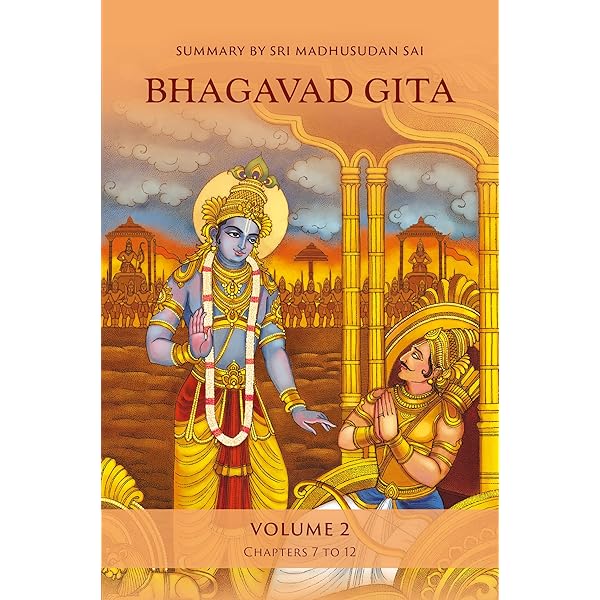Chapter I — The Bhagavad-Gita
byChapter I begins with a tense question from the blind king Dhritarashtra, who seeks to know what his sons and the sons of Pandu are doing on the sacred field of Kurukshetra, a place destined for both war and awakening. Sanjaya, the king’s trusted charioteer and seer, begins painting a vivid picture of the battlefield, where warriors from both sides stand ready, armed with conviction and duty. Duryodhana, the ambitious prince of the Kauravas, surveys the opposing army and grows alert. Though confident in his forces, he expresses concern about the strength and strategy of the Pandava warriors. As he speaks to his teacher Drona, he points out the skilled allies standing against him. His speech reveals a mixture of pride and unease, signaling that beneath his boldness lies a hint of fear about the righteousness and unity of the Pandavas.
The moment escalates with the blast of conches, war drums, and trumpets, creating a thunderous call to arms that echoes across the land. This sound, filled with energy and emotion, marks the start of something more than a war—it marks the beginning of a moral and spiritual test. Each warrior sounds their conch as a sign of readiness and honor. Among these warriors, Arjuna stands tall on his mighty chariot, driven by none other than Krishna. Before the first arrow is fired, Arjuna asks Krishna to place the chariot between the two armies so he may see who he must confront. What he sees shifts the entire course of the story. Arrayed before him are not faceless enemies, but revered elders, cousins, and friends he has loved and respected throughout his life.
Faced with this heart-wrenching view, Arjuna’s strength gives way to sorrow. He is not afraid of death, but deeply grieved by the idea of killing his own blood for the sake of a kingdom. His emotions overwhelm him as he begins to reason out the consequences of war. He sees beyond the battlefield and into the collapse of families, the destruction of sacred traditions, and the rise of societal decay. In that moment, his bow slips from his hand, and he surrenders to his despair. Arjuna no longer sees victory as meaningful if it is stained with the blood of loved ones. This inner conflict—between duty and emotion—becomes the central crisis that the rest of the Gita aims to resolve.
The scene unfolds not just as a military standoff, but as a spiritual crisis. Arjuna, once resolute and noble, now finds himself lost in grief, torn between dharma (righteous duty) and his love for family. His refusal to fight is not a sign of weakness, but of intense inner struggle that questions the very purpose of war and victory. He drops his weapons and declares he will not fight, kneeling in his chariot, defeated by his own thoughts. This act brings the narrative to a dramatic pause. It also marks the moment when Krishna must step in—not just as a charioteer, but as a spiritual guide. Arjuna’s despair opens the door for deeper questions about life, duty, and the soul, making this chapter the emotional gateway to the teachings that follow.
This chapter is essential because it humanizes the warrior and challenges simplistic notions of heroism. It captures the agony of choice when values collide—when upholding duty means hurting those we love. Arjuna’s hesitation reflects a universal human experience: the tension between moral clarity and emotional burden. The battlefield becomes a metaphor for the inner war we all face at critical moments in life. As the chapter ends, there is no resolution yet—only questions, sorrow, and silence. Yet within that silence lies the potential for wisdom to emerge. Chapter I, though filled with tension and indecision, prepares the reader for the spiritual dialogue that begins in the next chapter, where the voice of divine truth will begin to answer the turmoil of the human heart.

